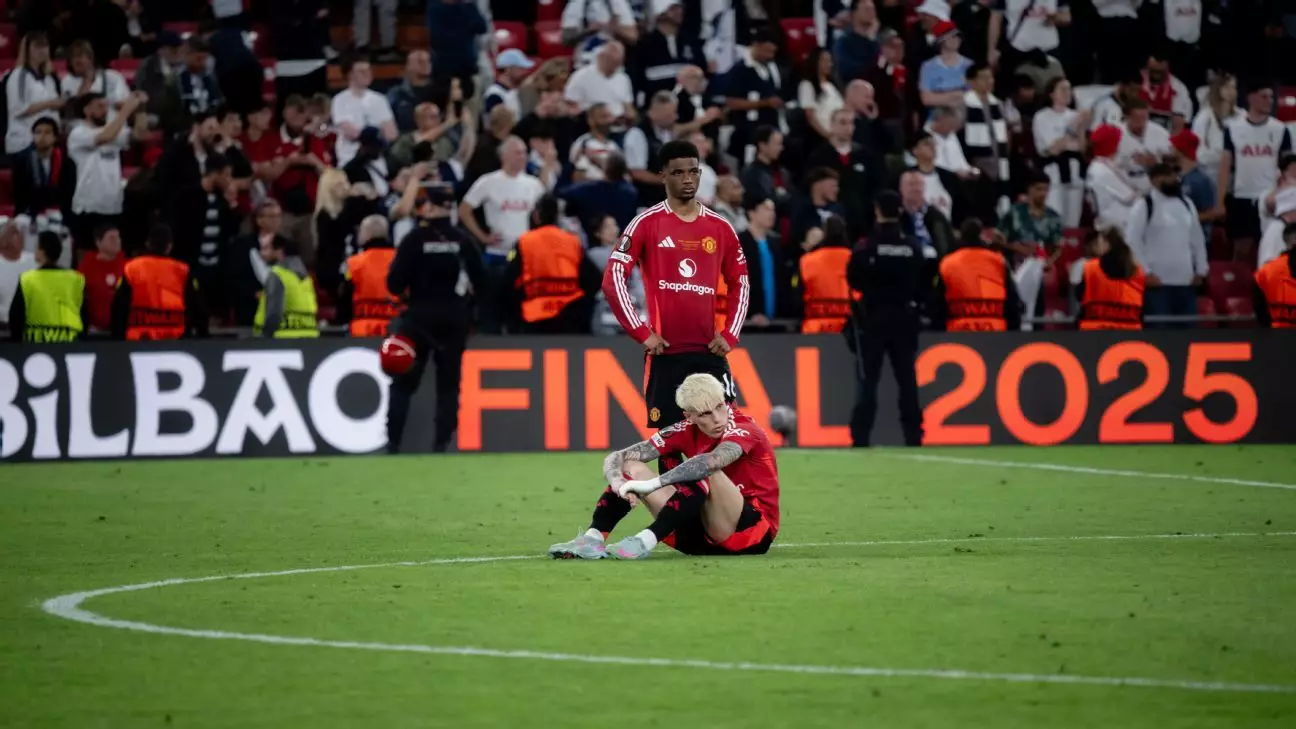Amid a whirlwind of rumors and expectations, Amad Diallo has added his voice to the conversation concerning Alejandro Garnacho’s future at Manchester United. Following a lackluster season where the club finished a disappointing 15th in the Premier League, speculation has intensified regarding Garnacho’s potential exit. Reports have surfaced that the talented 20-year-old’s representatives are entering negotiations with other clubs, heightening the anxiety among fans and teammates alike. Such uncertainty can create a tense atmosphere, particularly as Garnacho has become an integral part of the squad, raising questions about the club’s next steps as the transfer window looms.
In a recent prematch press conference, Diallo expressed his fervent wish for Garnacho to remain at United. “Alejandro is a really good player and we need good players in the team,” he said, indicating not only his personal feelings but also the sentiment shared by many within the club. This camaraderie can be vital in maintaining morale, especially during a tumultuous time when player focus may waver. The loss to the SEAN All-Stars, followed by the impending matches in Hong Kong, further emphasizes the need for stability in the squad that Garnacho represents.
Unfolding Dynamics of Team Morale
Garnacho’s absence in the recent match against Aston Villa due to his frustration from being benched during the Europa League final illustrates the fragile emotional state of the players. Rather than simply being athletes, they are individuals who experience pain, disappointment, and the yearning for acknowledgment from their coaches and fans alike. Diallo’s comments reflect a more significant truth—great teams are built not just with formidable players but with a nurturing environment that fosters loyalty and passion for the club. In a gritty season marked by struggle, showing solidarity can work wonders in transforming player attitudes.
Coach Ruben Amorim’s recognition of the challenge this season presents is both realistic and sobering. He acknowledges the difficulty in facing fans after such disappointing results. The players are under pressure not only to perform well but also to restore faith among supporters wearing their colors. The challenging preseason tour, compounded by travel fatigue, shows how critical it is for players to rally together in the face of adversity, and Garnacho’s presence—whether temporarily or permanently—could be an essential part of this team rebuilding process.
The Importance of Retaining Young Talent
The narrative surrounding Garnacho and any potential departures demonstrates a broader issue in football—how clubs manage young talent. In a world increasingly dominated by financial considerations, it’s often easy to overlook the value of player loyalty and growth. Teams thrive when they cultivate a group of players who understand the club’s ethos and can rally for one another, especially during hard times. Diallo’s heartfelt appeal serves as a reminder that sustaining relationships among team members may be just as important as scouting new talent.
At 20, Garnacho represents a blend of raw talent and potential that clubs covet. If Manchester United wants to build a future-oriented squad, they should prioritize retaining players like him who exhibit both promise and passion. The responsibility lies not only with the players but also with the management who must create an environment conducive to their development and satisfaction. Fostering a culture that encourages progression could redefine the club’s identity in the coming seasons.
Fan Engagement: The Anvil Beneath All Success
With fans increasingly vocal about their needs and expectations, especially during postseason tours, the relationship between club and supporters cannot be overstated. Amorim’s remarks about the difficulties of facing fans post-disappointing results underscore the precariousness of this balance. Fans are the life force of any football club, and their faith is essential for player motivation and club success. United’s commitment to engage with their fanbase, even in inadequate circumstances, represents an understanding of this dynamic.
As the club navigates potential changes in its roster, ensuring that the players’ sentiment—for or against remaining—resonates with the fans is crucial for rebuilding trust. In light of Diallo’s passionate endorsement for Garnacho to stay, perhaps his words resonate beyond the immediate context and speak to a larger vision: that the future of Manchester United must involve a commitment not only to talent but also to unity, empathy, and the power of belonging.

